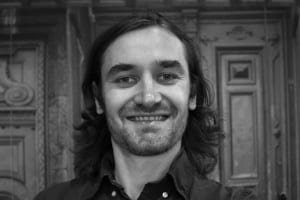
Abstract: Majority vote is a basic method for amplifying correct outcomes that is widely used in computer science and beyond. While it can amplify the correctness of a quantum device with classical output, the analogous procedure for quantum output is not known. We introduce quantum majority vote as the following task: given a product state ∣ψ_1⟩⊗⋯⊗∣ψ_n⟩ where each qubit ∣ψ_i⟩ is in one of two orthogonal states ∣ψ⟩ or ∣ψ^⊥⟩, output the majority state. We show that an optimal algorithm for this problem achieves worst-case fidelity of 1/2 + Θ(1/n). Under the promise that at least 2/3 of the input qubits are in the majority state, the fidelity increases to 1 − Θ(1/n) and approaches 1 as n increases.
We also consider the more general problem of computing any symmetric and equivariant Boolean function f: {0,1}^n→{0,1} in an unknown quantum basis, and show that a generalization of our quantum majority vote algorithm is optimal for this task. The optimal parameters for the generalized algorithm and its worst-case fidelity can be determined by a simple linear program of size O(n). The time complexity of the algorithm is O(n^4 log n) where n is the number of input qubits.
This is joint work with Harry Buhrman, Noah Linden, Laura Mančinska, and Ashley Montanaro.
https://arxiv.org/abs/2211.11729
Bio: Maris Ozols is an assistant professor at the University of Amsterdam and a researcher at QuSoft. He is interested in quantum algorithms and quantum information theory. Before coming to Amsterdam, he was a Leverhulme Early Career Fellow at the University of Cambridge and a post-doctoral researcher at IBM. He obtained a PhD from the University of Waterloo.
